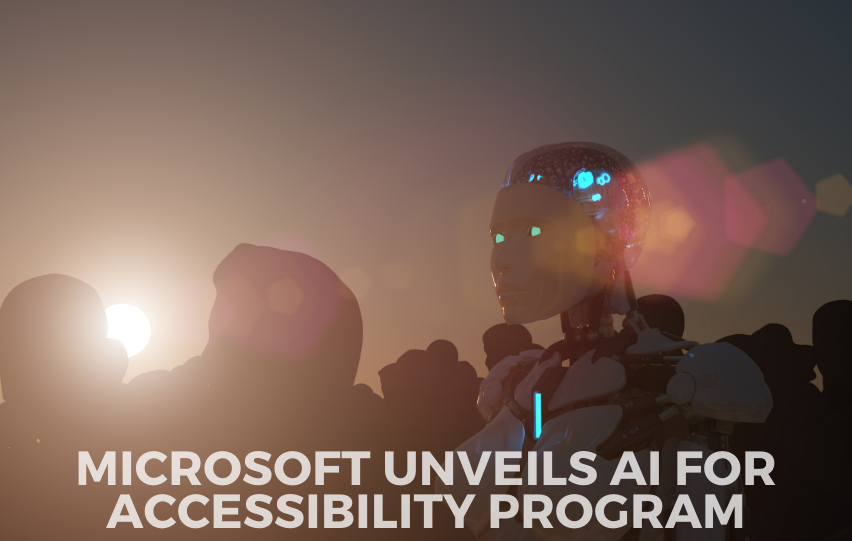A blog posted on Microsoft’s The AI Blog revealed the AI for Accessibility program aimed at people with disabilities. This project is geared toward shrinking the so-called “data desert” regarding people with disabilities and artificial intelligence.
Simone Stumpf, a senior lecturer at the Centre for Human-Computer Interaction Design at City, University of London, noted that “without data, there is no machine learning.”
Stumpf also said, “There’s really been no dataset of a size that anyone could use to introduce a step-change in this relatively new area of AI.”

Microsoft principal innovation architect lead Mary Bellard agrees, saying that there is a “data desert” regarding this matter.
Without the right datasets, researchers and developers who work with such communities are hindered by creating solutions that can assist people with disabilities in their daily lives.
According to the blog, artificial intelligence models used by companies during the hiring process can misread cues exhibited by qualified candidates with autism and those who emote differently. Such technology is also expected to minimize instances of prejudice against the community.
In order to combat this problem, Microsoft researchers have been studying how to create an inclusive AI system for personalized assistance over the past year and a half. This resulted in the AI for Accessibility program, which is currently working with grantees to gather data.
While Microsoft has taken great strides in this matter, the company acknowledges that the data desert is “an industry-wide problem that won’t be solved by one project or organization alone.” However, collaborating with other institutions through funding grants can help.
Data collected by the company and partner institutions will be used to power AI projects by the company. The datasets will also be made available to the public to be used to develop artificial intelligence for individuals with disabilities.
To further gather relevant data, Microsoft has also partnered up with Team Gleason for Project Insight. This particular initiative seeks to comply with a dataset of facial imagery of people with ALS. The goal of this project is to help train computer vision and models for inclusivity.
Some of the existing and under-development technology that have resulted in the AI for Accessibility program include VizWiz developed by Danna Gurari, the Object Recognition for Bling Image Training (ORBIT) developed by the City, University of London, and the University of Texas at Austin’s Microsoft Ability Initiative.
















